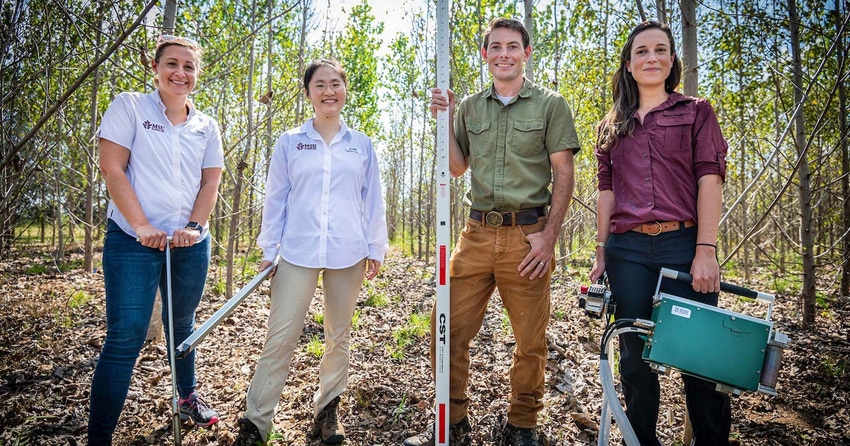
Mississippi State University and the University of Tennessee Institute of Agriculture both recently announced major grants to fund research of potential sources of biomass energy. The U.S. Department of Energy awarded MSU researchers in the university’s Forest and Wildlife Research Center a $2.5 million grant to study the economic and ecological benefits of growing trees for biofuel production.
Meanwhile, the Federal Aviation Administration awarded researchers at UTIA a $250,000 grant to evaluate the feasibility of growing biomass for jet fuel.
Trees for biofuel
At MSU the DOE funding will help scientists study how to produce better, hardier hybrid poplars and eastern cottonwoods. These trees are considered fast-growing and could be ideal candidates for biomass production.
“These trees can grow between 20 – 40 feet in two to three years,” said Heidi Renninger, assistant professor in MSU’s college of Forest Resources. “A that point they are cut back. The cut trees are used in the creation of biofuel while a new crop re-sprouts from the coppiced stumps.”
The study will also evaluate the economics of raising trees for biofuel production. “We hope to find ways to make utilizing these trees for renewable energy more profitable for landowners and the emerging biofuel industry alike,” Renninger said. “In order to do that, we need resilient trees that can grow on different landscapes under different circumstances.” (Learn more.)
Growing jet fuel
For their biomass research, scientists at UTIA will analyze oilseed cover crops such as pennycress, canola, carinata and camelina, as well as softwood logging residues as potential sources of renewable aviation fuel. The analysis includes evaluation of feedstock availability and supply chain requirements to grow, move, crush feedstock and transport fuel to the airport.
As the aviation industry works toward the goal of carbon-neutral growth, researchers say the pace of commercialization of sustainable aviation fuel must be accelerated.
“This one-year grant project will generate strategic information and educate stakeholders on production pathways that can increase economic efficiency, enhance sustainability awareness, leverage economics of scope and scale and reduce renewable fuel costs,” said Burton C. English, UTIA professor and lead researcher.
The researchers will analyze the economic viability and environmental impacts of using cover crops as a biomass feedstock for jet fuel. Then the team will develop a plan for regional implementation of the sustainable biofuel aviation supply chain in Tennessee and the Southeast. A UTIA spokesperson said the airport regions to be examined are, tentatively, Nashville and Memphis for the oilseed pathway and Chattanooga, Birmingham and Atlanta for the logging residues pathway.
About the Author(s)
You May Also Like






